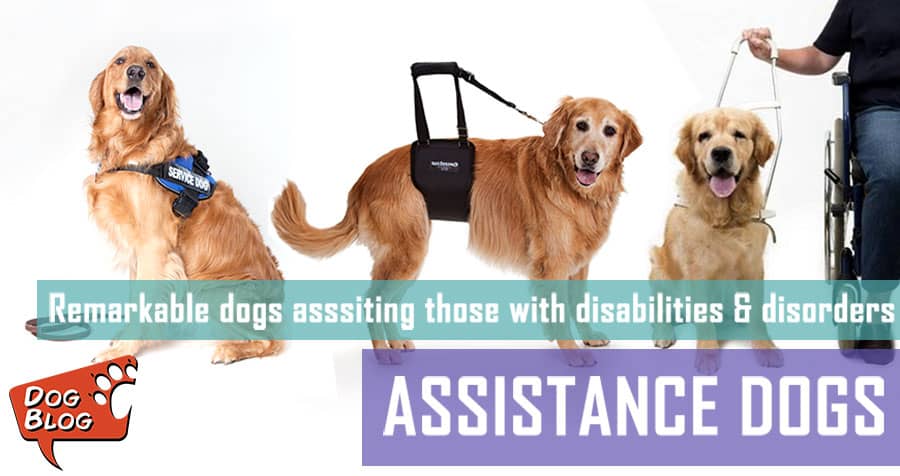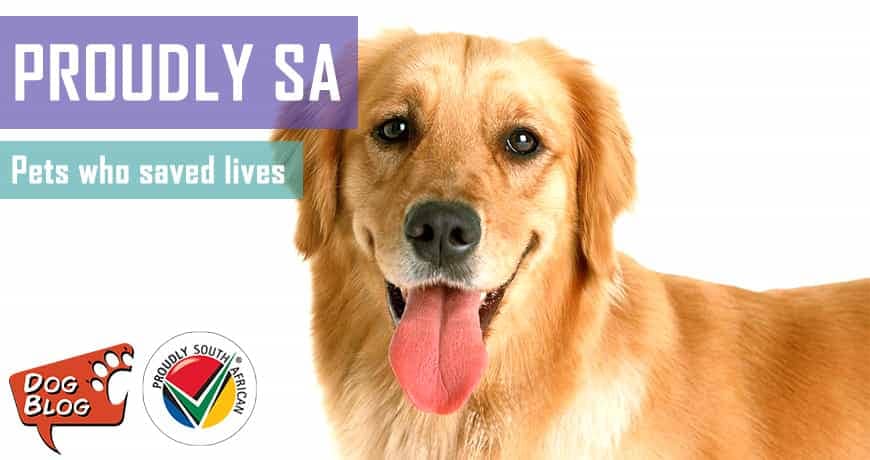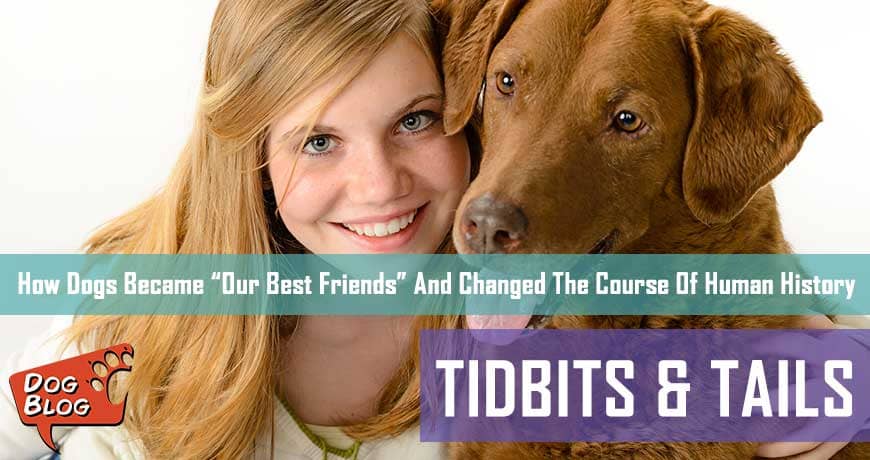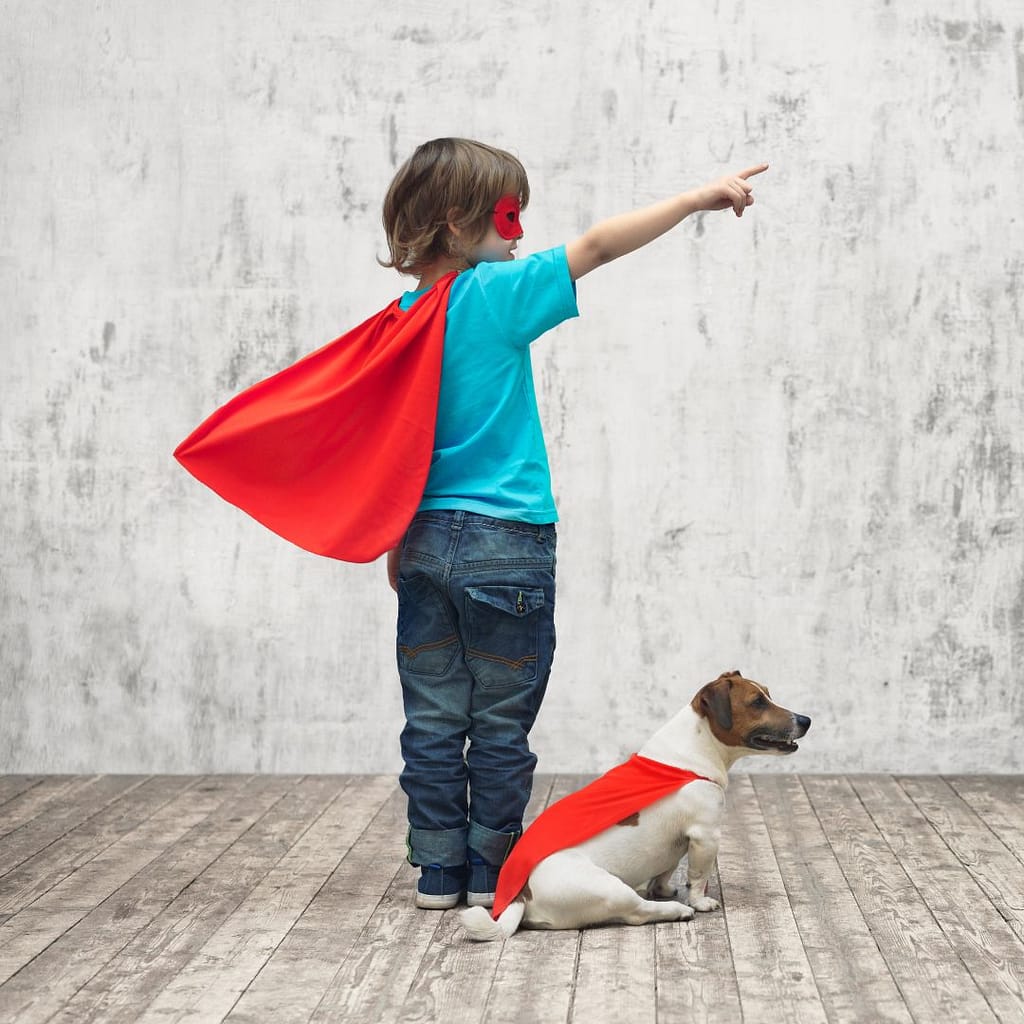Dogs assisting those with disabilities and disorders
Assistance dogs give people with disabilities the opportunity to live life as ‘normally’ as possible. The presence of an assistance dog increases the person’s independence and reduces the need for human caregivers. For people with developmental and mental health disorders, an assistance dog can be a surprising ice-breaker and help their patients out of social isolation.
Not all assistance dogs are the same, however, and the type of support they offer varies. Some people need physical support, such as those with paraplegia, quadriplegia, cerebral palsy and multiple sclerosis; while others with developmental disabilities (such as autism) and mental health disorders (such as post-traumatic stress disorder) will require a different kind of support from their hairy heroes.
There are many different types of assistance dogs ready to take on the world and to make a difference in a person’s life – not just by lending a helping paw, but by becoming man’s true best friend, a friend that provides a purpose to get up and start the day. A few of these types are listed below:
Physical Service Dogs
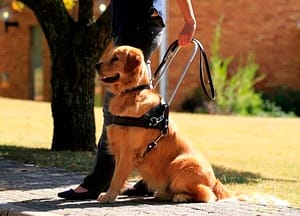 The Guide Dog
The Guide Dog
Guide dogs are trained to lead the blind and visually impaired person. The guide dog has to be trained from puppyhood to take on a very busy world full of noises and obstacles. Trained guide dogs come from a well-bred genetic bloodline and are hand-picked very carefully in order to serve as guide dogs.
The Hearing Dog
Deafness can be a lonely disability and can make one feel isolated in life.
Hearing dogs provide accessibility to the world. They also bring joy and happiness of course, but most importantly, a hearing dog can offer increased independence, greater confidence, companionship and a feeling of security. Hearing dogs are trained to alert hearing-impaired people to sounds like the ringing of an alarm, doorbell, telephone and much more.
The Mobility Dog
The mobility dog enhances the lives of many people living with physical disabilities, by increasing their activity, independence, confidence and self-esteem. Mobility dogs offer physical support for balance and can retrieve objects for their owners who are not able to move as freely.
Medical Service Dogs
 Medical Assistance Dogs
Medical Assistance Dogs
Medical assistance dogs are trained to assist individuals who have to manage complex health conditions, giving them greater independence and potentially saving their lives in an emergency. They are taught to identify the odour changes that are associated with life-threatening medical events.
The avoidance of dangerously low blood sugar levels (hypoglycaemia) is an acute daily problem for people with diabetes. When accompanied by an absence of warnings, it has a dramatic effect on the lives of both the person with diabetes and their family. For some diabetics, deliberately raising their blood sugar levels is the only way to prevent severe hypoglycaemic attacks. With their keen sense of smell, medical assistance dogs are trained to detect minute changes in blood sugar levels, which register as a very specific scent on the person’s breath. When these levels fall or rise outside the normal range, the assistance dog will warn their owner, go for help or fetch vital medical supplies.
Seizure Alert Dogs and Seizure Response Dogs
Essentially, these dogs act as an ‘alarm system’ while also being helpers, protectors and service providers. There are two types of dogs trained to help with seizure disorders, namely seizure response dogs and seizure alert dogs. A response dog might be trained to bark when a child is having a seizure so that family members are alerted to what is happening; while a seizure alert dog may put its body in between the individual who is about to have a seizure and the floor in order to break the fall at the start of a seizure. Certain seizure dogs are trained to activate a pre-programmed assistance device, such as a pedal that rings an alarm.
Allergy Detection Dogs
Allergy detection dogs accompany their handlers to detect allergens and residue at school, during social events and in other everyday activities. By using techniques pioneered for explosives detection, dogs can be trained to find an allergen odour and identify its location by sitting down and pointing to it with their noses. Dogs can even locate residue where an allergen has previously been.
The basic principles and training methods are the same regardless of what the dogs are being trained to find. The dogs are especially useful for people who risk going into anaphylaxis, a potentially life-threatening allergic reaction, by touching or coming into contact with an allergen.
Therapy and Emotional Support Dog
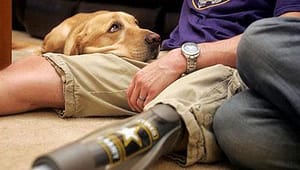
Therapy Dog
A therapy dog is a dog trained to provide affection and comfort to people in the hospital, retirement homes, nursing homes, hospices, schools, disaster areas and to people with learning difficulties. The heartfelt comfort that a terminally ill, traumatised or abused patient can receive from a therapy dog is second to none.
Emotional Support Dogs
Emotional support dogs provide comfort and support in the form of affection and companionship for an individual suffering from various mental and/or emotional conditions. An emotional support dog is not required to perform any specific tasks for a disability in the way that service dogs do, but provide emotional stability and unconditional love and comfort. They can assist with conditions such as anxiety, depression, bipolar disorder/mood disorder, panic attacks, fear/phobias and other psychological and emotional conditions.
Autism Support Dog
An autism support dog can improve a child’s ability to participate in education, social interaction and leisure activities. This is because the companionship reduces the stress associated with interacting with other people and being involved in social situations. Each autism support dog is different for every child because each child is unique.
Mental Health Support Dogs
Mental health support dogs enhance the quality of life for their handlers by helping them to live independently. Each service dog is tailor-trained to meet the specific needs of the individual. These talented dogs are trained to help their handlers both inside and outside of the home.
It takes a dedicated and committed team to breed, raise and successfully train assistance dogs. We can only thank them for their hard work and effort that goes into the process that truly makes a difference in the lives of so many.

